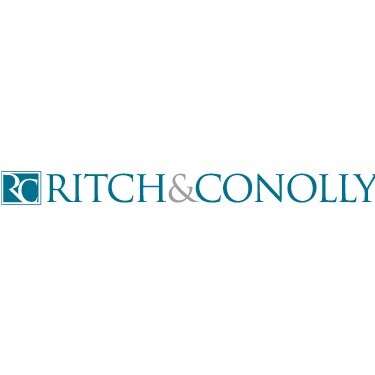Best Government Relations & Lobbying Lawyers in George Town
Share your needs with us, get contacted by law firms.
Free. Takes 2 min.
List of the best lawyers in George Town, Cayman Islands
About Government Relations & Lobbying Law in George Town, Cayman Islands
Government Relations & Lobbying Law in George Town, Cayman Islands, encompasses the regulation of interactions between government officials and entities seeking to influence government policy or legislation. The unique business environment and political structures in the Cayman Islands provide a landscape in which effective government relations and lobbying can play a crucial role. These activities must comply with local regulations to ensure transparency and accountability. Professionals operating in this field often require legal guidance to navigate these complex legal frameworks effectively.
Why You May Need a Lawyer
Individuals and organizations may seek legal assistance in government relations and lobbying for various reasons. Common situations include ensuring compliance with lobbying regulations, understanding the impact of new legislation on business operations, seeking permits or approvals, interacting with government officials, or addressing potential legal disputes involving government entities. Legal professionals can provide invaluable guidance through these processes to ensure compliance and effective advocacy.
Local Laws Overview
In George Town, lobbying and government relations are governed by a framework that emphasizes transparency and accountability. Key aspects of relevant local laws include registration requirements for lobbyists, disclosure of lobbying activities, and rules regarding gifts or financial transactions with government officials. A comprehensive understanding of these regulations is essential for anyone engaging in government relations and lobbying activities to ensure that all interactions are lawful and above board.
Frequently Asked Questions
What is the role of a lobbyist in the Cayman Islands?
A lobbyist in the Cayman Islands typically works to influence government policy on behalf of an organization or individual. They engage with government officials to present their clients' perspectives and advocate for legislative changes that would benefit their clients' interests.
Do lobbyists need to register in George Town?
Yes, lobbyists may be required to register as part of efforts to ensure transparency. Registration helps maintain a record of who is influencing government decisions, fostering accountability within the political process.
Are there restrictions on gifts to government officials?
Yes, there are regulations that restrict the acceptance of gifts by government officials to avoid potential conflicts of interest and corruption. These rules are in place to maintain integrity and public trust in government actions.
What should I do if my organization needs a legislative amendment?
To pursue a legislative amendment, it is advisable to consult with a legal expert who specializes in government relations. They can assist in drafting proposals and navigating the legislative process to ensure your organization's interests are effectively represented.
Can I meet with a government official without registering as a lobbyist?
Occasional meetings or informal interactions might not require registration as a lobbyist; however, if your primary role involves lobbying activities, registration may be necessary. Consulting with legal counsel can clarify registration requirements.
How can legal advice help my lobbying efforts?
Legal advice ensures that your lobbying activities comply with local regulations, reducing the risk of legal issues and enhancing the effectiveness of your efforts by leveraging a robust understanding of the legislative process.
What are the penalties for non-compliance with lobbying laws?
Penalties for non-compliance with lobbying laws can include fines, sanctions, and damage to reputation. Engaging legal professionals can help prevent these risks by ensuring adherence to all applicable laws.
Is there a public registry for lobbyists in the Cayman Islands?
While efforts for increased transparency have been initiated, the availability of a public registry may vary. Checking with local authorities will provide the most current information regarding a lobbyist registry.
How do I formalize a relationship with a lobbying firm?
Formalizing a relationship with a lobbying firm typically involves a contractual agreement that outlines services, fees, and confidentiality clauses. Legal advice is recommended to understand and negotiate the terms effectively.
What is the first step in government advocacy?
The first step in government advocacy is to thoroughly understand the relevant legislative landscape and identify the appropriate governmental bodies or officials to engage. Legal professionals can assist in developing an effective advocacy strategy.
Additional Resources
For those seeking more information or legal advice on government relations and lobbying in George Town, consider reaching out to the Cayman Islands Legal Practitioners Association, the Chamber of Commerce, or consulting directly with legal experts who specialize in this area. These organizations can provide guidance and resources to support your lobbying efforts.
Next Steps
If you require legal assistance in government relations and lobbying, the next steps involve consulting with a qualified lawyer who has expertise in this area. You may start by researching legal firms in George Town that specialize in government relations, schedule an initial consultation to discuss your needs, and develop a strategic plan to address your legal and regulatory challenges. An experienced attorney can offer you the advice and support necessary to navigate the complexities of lobbying laws in the Cayman Islands.
Lawzana helps you find the best lawyers and law firms in George Town through a curated and pre-screened list of qualified legal professionals. Our platform offers rankings and detailed profiles of attorneys and law firms, allowing you to compare based on practice areas, including Government Relations & Lobbying, experience, and client feedback.
Each profile includes a description of the firm's areas of practice, client reviews, team members and partners, year of establishment, spoken languages, office locations, contact information, social media presence, and any published articles or resources. Most firms on our platform speak English and are experienced in both local and international legal matters.
Get a quote from top-rated law firms in George Town, Cayman Islands — quickly, securely, and without unnecessary hassle.
Disclaimer:
The information provided on this page is for general informational purposes only and does not constitute legal advice. While we strive to ensure the accuracy and relevance of the content, legal information may change over time, and interpretations of the law can vary. You should always consult with a qualified legal professional for advice specific to your situation.
We disclaim all liability for actions taken or not taken based on the content of this page. If you believe any information is incorrect or outdated, please contact us, and we will review and update it where appropriate.
















